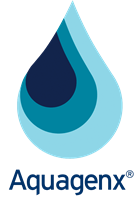The Aquagenx Compartment Bag Test is a portable water test kit that can be used by anyone, anywhere to determine if water is safe to drink, without the need for electricity or a lab.
Chapel Hill, NC – July 02, 2013 – The Aquagenx Compartment Bag Test (CBT) is a new portable water test kit that lets anyone in any setting determine if their drinking water poses a potential health risk.
The CBT is the only portable, self-contained, household level water quality test that detects and quantifies E. coli levels in the World Health Organization 100mL standard sample, requires no electricity or lab, provides built-in decontamination and requires no incubator at temperatures above 25 degrees Celsius. It eliminates costs for refrigeration, sample transportation, lab sample analysis and processing and highly trained, specialized technicians.
Compact and self-contained, the CBT provides microbial water testing in a few simple steps with easy-to-score, visual, color change results.
The CBT has many benefits for water, sanitation and hygiene programs:
- Provides quantitative water quality results based on the World Health Organization’s risk categories
- Enables water quality testing even in low resource and disaster settings
- Allows individuals and communities to make informed decisions about the safety of their drinking water and actions needed to improve water quality
- Eliminates costs for refrigeration, sample transportation, lab sample analysis and processing, and highly trained, specialized technicians
- Removes indirect costs associated with other water testing products such as labor costs that address product requirements, recleaning and sterilization of reusable testing components, required supporting equipment and excessive test waste
- Expands and improves efficiency of water testing programs
Testing water quality is an essential component of any water, sanitation and hygiene program. The CBT now makes it possible for anyone, in any location or environment, to detect fecal bacteria in drinking water, determine if their water is safe to drink and monitor water quality.
Dr. Mark D. Sobsey, the creator of the CBT, is an authority on water quality and a distinguished professor at the University of North Carolina Gillings School of Global Public Health. “It’s impossible to tell if water poses a health risk just by looking at it,” says Sobsey. “Drinking water has to be tested and monitored on an ongoing basis to insure continued safety. In developing countries and rural areas, the ability for local authorities and inhabitants to test water is severely limited. Yet a day without safe water is a day of being at risk of waterborne disease.
“Drinking water quality test kits should be accessible and easy to use, so that people can be informed and empowered to take appropriate action when their drinking water poses a risk to their health.”
Already used throughout the world, the CBT provides quantitative drinking water quality test results based on the World Health Organization risk categories and country standards. The CBT has been tested extensively by third parties against other standard testing methods and provides results on par with more complicated, expensive and less portable tests.
Aquagenx customers include major universities, global NGOs and government entities, and private companies focused on water quality testing, provision of safe household and community drinking water and water research.
About Aquagenx:
Aquagenx, LLC is a social enterprise formed around years of research and development at the University of North Carolina Gillings School of Global Public Health. Led by Dr. Mark Sobsey and Dr. Ku McMahan, Aquagenx developed and commercialized the Compartment Bag Test (CBT) to improve monitoring of drinking water in low resource settings and help prevent the millions of deaths that occur annually due to contaminated drinking water.
The CBT is the only portable, self-contained, household level water quality test that detects and quantifies E. coli levels in a WHO 100mL standard sample, requires no electricity or lab, provides built-in decontamination and requires no incubator at temperatures above 25 degrees Celsius. It eliminates costs for refrigeration, sample transportation, lab sample analysis and processing and highly trained, specialized technicians.
